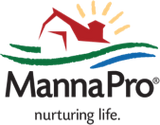Posted by Dr. Shannon Baker, DVM, Tue, Jan 20, 2015
Maintaining your senior horse’s ideal body weight can sometimes be a challenge, but it does not have to be complicated.
Simple steps for senior horse weight gain
The approach to getting a thin senior horse to gain weight is pretty straightforward if you follow these simple steps:
1. Get an objective assessment of your horse’s body weight and condition.
The most accurate way to estimate body weight (without a scale) is to use a weight tape.
Put the weight tape around the horse’s chest, just behind their withers and under the girth, and record their weight. Then, using the Henneke Body Condition Scoring System, in which 1 is emaciated and 9 is obese, compare your horse to the examples, paying special attention to the ribs, tail, head, and neck.
A good rule of thumb is that you want to be able to feel the ribs but not see them. Some horses will not distribute their weight evenly, so you will need to take all areas into consideration. Measuring and recording your horse’s weight and body condition will allow you to keep track of their progress.
2. Address the underlying cause of weight loss.
Once you’ve determined that your horse is too thin (at or below a 4), you need to address the underlying cause of their weight loss.
Questions to ask
- Is your horse just a hard keeper (i.e., has a high natural metabolism) who’s always had a hard time keeping weight on?
- Have their energy requirements increased due to an increased workload, or has she been nursing a foal?
- Are they being dewormed regularly? Have their teeth been checked recently?
- Are they a rescue horse that has not had proper care and adequate food?
- Have they lost weight abruptly despite no change in diet or workload?
- If the answer to the last question is yes, it may be of particular concern because this may be a warning sign that something more serious is occurring. Any medical or dental conditions contributing to the horse’s weight loss will need to be assessed by a veterinarian prior to addressing their diet.
3. Evaluate your horse’s diet
Once you have addressed the underlying cause of the weight loss, you can evaluate your horse’s diet.
The most important aspect of their diet (other than water) is roughage. A horse should consume 2% of its body weight in high-quality forage a day. For a 1,000-pound horse, this would be 20 pounds. Free-choice access to pasture is the best way to provide for this requirement.
If pasture is limited, then good-quality hay will need to be provided. If you are unsure of the quality of your hay, get it tested to see where it is lacking. If a horse cannot chew the hay properly due to worn or missing teeth, then chopped hay, soaked hay cubes, or a complete diet that provides roughage may be given.
Once a horse is consuming the proper amount of roughage, then additional concentrates, grains or supplements can be considered. A horse who can maintain their weight on hay or pasture alone may need only a vitamin or mineral supplement, such as Manna Pro® Sho-Glo®, to balance out their diet; however, a horse that requires extra calories should be given a senior horse feed supplement such as Manna Pro Senior Weight Accelerator™. All feeds and supplements should be formulated for the horse’s individual needs based on age, sex, workload, and body condition.
Read the feed and supplement labels carefully. Weigh the feed, and feed within the recommended amounts.
Generally, commercial horse feeds are nutritionally balanced so that the individual vitamin and mineral requirements are met by feeding a certain weight of feed. Feeding below recommended amounts will mean that your horse is not getting the essential vitamins and minerals they need. If a horse is still too thin after feeding the maximum recommended amount, then I would recommend switching to a more calorie-dense diet (typically growing or performance horse diets) or adding a senior horse feed weight supplement that is based on good fats, such as Manna Pro Senior Weight Accelerator.
Add calorie-dense fats to help horses safely gain weight
Fats are a calorie-dense feed source that will help a horse put on weight in a safe way. Grains and sweet feeds, while providing calories, are high in simple carbohydrates (sugars) that may disrupt the normal bacterial flora and function of the GI tract and may cause a horse to become jittery, or “hot.” Weight supplements that supply calories from good fats do not have these negative side effects and will carry the added bonus of improving skin and coat condition.
Fun Fat Fact: Fat contains more than twice the calorie content of starch and is safe to feed because horses can easily digest and utilize fat.
Always remember to make any feed changes gradually, and don’t expect results overnight.
After making a feed change, you should start seeing results within 2–4 weeks. If you aren’t seeing results, then re-evaluate and make additional changes. Once a horse has reached their ideal weight, you will need to decrease their food allotment to prevent them from continuing to gain weight and becoming obese. Remove calories in the reverse order in which you added them: first, reduce or eliminate the weight supplement; then, reduce the concentrate or balanced horse feed. As always, if you have any concerns or are not seeing improvement, you should follow the advice of your veterinarian.
Take the very best care of your senior horse with Manna Pro!
Author Profile: Dr. Shannon Baker, DVM
Dr. Shannon Baker graduated from the University of Missouri, College of Veterinary Medicine in 2002 with her DVM degree. After vet school, she completed an Equine Internship at MU. She currently owns Heartland Veterinary Services, a full service equine ambulatory practice with an emphasis in equine dentistry.
More Blogs by Dr. Shannon Baker, DVM
- https://www.mannapro.com/equine/Swing-into-Spring-Seasonal-Horse-Founder-Prevention-Tips
Featured Products

